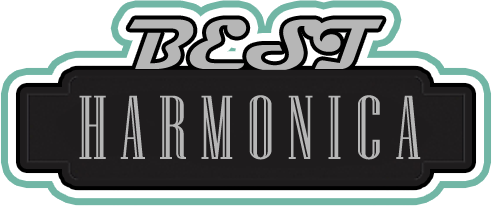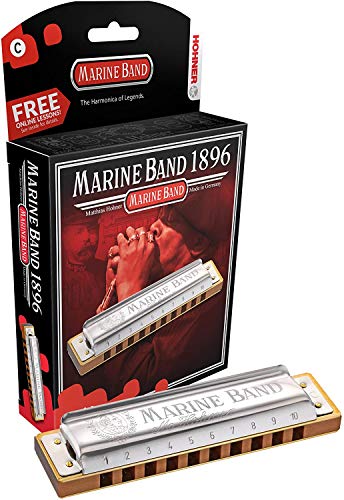Hohner Special 20 and the Hohner Marine Band Blues: Which is Better?
Of all the harmonica’s in the world, Hohner’s Marine Band Blues and Special 20 Diatonic harp have had the most significant impact on music. The Marine Band 1896 has been around since the birth of the blues. It is known as the go-to harp for big names like Bob Dylan and Paul Butterfield, and as a diatonic harmonica, it is one of the best in the business.
Hohner’s Special 20, on the other hand, is a beginner’s dream. Easy to play, versatile, and preferred by the harmonica genius John Popper, the Special 20 is a unique kind of harp, especially since it fits into blues, folk, rock, and country music just perfectly.
Here’s the dilemma that most of you are currently facing: With Hohner Blues Harp vs Special 20, which one’s better?
That’s a hard question to answer because both are great harps that suit novices just as well as seasoned professionals. They cost about the same too. In the battle of the legendary Hohners, the Hohner Blues Harp vs. Special 20 debate can only be settled by the structural differences of the two harmonicas.
Hohner Marine Band Blues Harp
Pros
- Excellent for bending and overblowing
- Produces the classic wailing harmonica sound
- Sturdy stainless steel covers give it a tough exterior
- Beautiful handmade design
Cons
- The covers are nailed down, so it’s not easy to replace or repair a part without seeking a professional’s help.
Why Choose this Harmonica?
One wouldn’t be faulted for calling this the godfather of all harmonicas. If that’s not enough reason to own one, then consider the beautiful, timeless, wailing sound it produces. Plus, it is a well-built diatonic harp, which means it is perfect for beginners.
https://youtu.be/4LBOt6oT1u4
Overview
Measuring in at 12.7cm (5 inches) lengthwise, the Hohner Marine Band Blues Harp has been many a musician’s favorite throughout the history of blues music. Its signature wailing sound is a result of perfectly-integrated Richter tuning and undivided air channels, which allow for comfortable overblowing and note-bending. In other words, the Marine Band Blues is the instrument behind the classic western harmonica sound. That’s a huge reputation!
It has arched stainless steel covers, which help to create a beautiful sound profile, and side vents. The only disadvantage is that the nailed covers aren’t so easy to take off, so forget about repairing this harmonica on your own if you’re a beginner.
Underneath this sturdy steel case, there’s a lacquered wood comb (pear wood to be precise). Some say wood combs are a problem because they eventually become swollen or warped. There is, also, a 0.9mm brass reed plate, which is nailed down too, and 20 classic reeds.
The Marine Band Blues harp is a classic because it is available in all major keys, can go an octave higher or lower, and also supports special tunings. Versatility is a trait that many harp musicians demand of their instruments, and this beautifully handcrafted harmonica offers it by the boatload.
Hohner Special 20 Diatonic Harmonica
Pros
- Features a plastic comb that’s easier to play with and more durable than wood combs.
- Small, compact profile that makes it highly ergonomic and very portable.
- Protruding mouthpiece enhances player comfort dramatically.
- Reeds are easier to replace because they’re screwed in, not nailed down.
Cons
- The slight learning curve involved in tongue-blocking techniques.
Why Choose this Harmonica?
Few sounds can replicate the mellow, soothing sound of the Special 20 harmonica. It is capable of producing that gorgeous tune because of its unique airtight design. It sports a compact 4-inch profile that’s easy to handle and get used to. But the icing on the cake that is the Special 20 harmonica is its protruding mouthpiece, which is far more comfortable than what you get with harps like the Marine Band Blues.
Overview
The Hohner Special 20 Diatonic Harmonica earned its title by being one of the first-ever made with recessed reed plates, which create a projecting mouthpiece. The outcome was a harp that not only sounded great but was also very comfortable to play. Speaking of sound, the Special 20 has a distinctively mellow one. You’ve probably heard it before in one of your favorite songs because this harp fits in everything from pop music to folk to classic blues!
It measures 10.2cm (4 inches) in length, so it’s slightly smaller than the Marine Band Blues. If you have smaller hands, this can be good news. It can also be bad news if you’re used to bigger harps. It has a stainless steel cover too, but unlike its older brother, the sides are sealed, not vented. A word that’s commonly used to describe Special 20 is “airtight.”
Another thing that’s different with the Special 20 is the comb, which is made from ABS plastic instead of wood. This little change makes it more durable, easier to maintain, and safer to play than the Marine Band Blues.
Although the 0.9mm brass reed plates are held together by screws instead of nails, they protrude ever so slightly, so it’s harder to use tongue-blocking techniques on this harp.
Everything else about it is familiar; it is available in 12 major keys and supports lower and higher octave tunings. Plus, you get 30 days of free harmonica lessons with every Hohner harp you buy.
Final Thoughts
Hohner is a world-renowned handcrafter of excellent harps, and here we have two of the best they’ve ever built. The Marine Band Blues and the Special 20 harp are both very professional instruments, but they’re built with novices in mind too. As if that’s not enough, both feature a stunning stainless steel exterior with gorgeous Hohner engravings.
However, we have to pick a winner, and after sifting through the features, the crown goes to the Special 20 harmonica. This compact harp wins by a mere technicality: its plastic comb is superior to the wood comb in the Marine Band Blues. It lasts longer and is easier to play with, which makes it very accessible for beginners.
That doesn’t mean that the Marine Band Blues harp is not as magnificent as its reputation. It is a stunning instrument with vented sides, an arched exterior, and a lacquered pearwood comb, which produces a heart-wrenchingly beautiful wail when played. The problem is that most novices may find it hard to care for a harp with a wood comb.
So, get the Special 20 harmonica if you want something that’s (relatively) easy to maintain, and the Marine Band Blues harp if you want the classic harmonica sound. Both are diatonic, so they’re very beginner-friendly instruments.
And, regardless of what you settle for, you can rest easy in the knowledge that you have a quality Hohner harmonica in your hands, which is what matters most.


